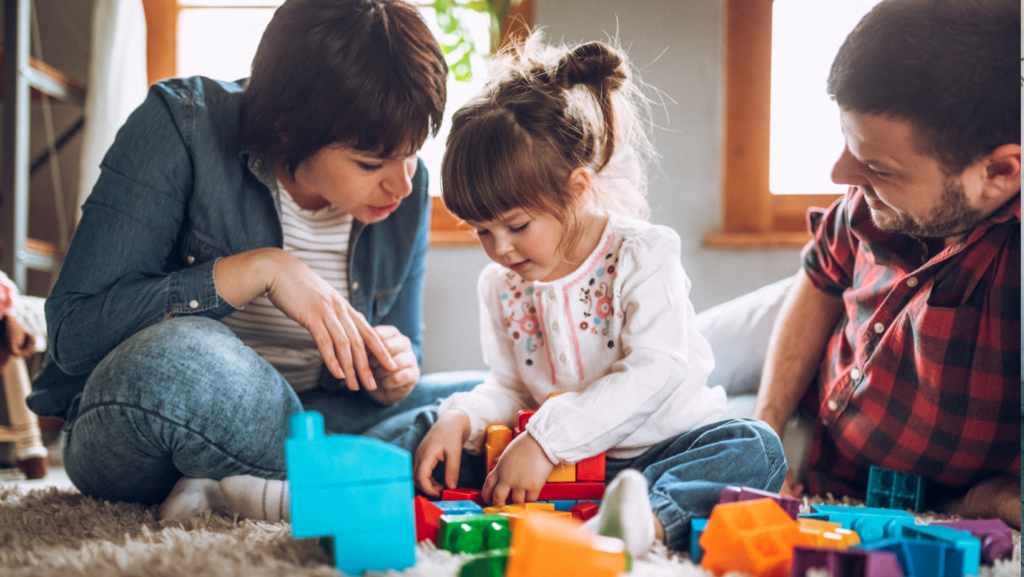Key Takeaways
- Establishing Routines: Create consistent daily schedules to enhance stability and security, helping children understand expectations and improving behavior.
- Promoting Positive Environments: Foster open communication and active listening to strengthen family bonds and encourage emotional well-being.
- Effective Communication: Utilize active listening techniques and create safe spaces for dialogue to nurture trust and openness within the family.
- Setting Boundaries: Implement clear and consistent rules that are age-appropriate, ensuring children understand acceptable behavior and expectations.
- Balancing Discipline and Freedom: Use age-appropriate consequences to teach responsibility while promoting independence through decision-making opportunities.
- Prioritizing Self-Care: Encourage parents to find time for self-care and build a support network to maintain emotional stability and resilience, benefiting the entire family.
Parenting can feel like a whirlwind of challenges and joys, often leaving parents searching for effective strategies to navigate daily life. With the demands of work, school, and family commitments, it’s easy to feel overwhelmed. However, small, practical tips can make a significant difference in creating a harmonious home environment.
Everyday parenting tips offer simple yet powerful ways to foster connection, encourage independence, and promote positive behavior. From establishing routines to effective communication techniques, these strategies can help parents build stronger relationships with their children while making daily tasks more manageable. Embracing these tips can transform the parenting journey into a more enjoyable and fulfilling experience.
Everyday Parenting Tips
 Everyday parenting tips provide practical guidance that helps streamline daily family life. These strategies contribute to a balanced, nurturing environment for children. Routines create stability and predictability for children. Regular schedules enhance security and reduce anxiety. Morning routines, homework time, and bedtime rituals foster responsibility and self-discipline. Consistency in these activities leads to smoother transitions and improved behavior. Parents should strive to establish clear expectations and maintain regularity, making adjustments only when necessary.
Everyday parenting tips provide practical guidance that helps streamline daily family life. These strategies contribute to a balanced, nurturing environment for children. Routines create stability and predictability for children. Regular schedules enhance security and reduce anxiety. Morning routines, homework time, and bedtime rituals foster responsibility and self-discipline. Consistency in these activities leads to smoother transitions and improved behavior. Parents should strive to establish clear expectations and maintain regularity, making adjustments only when necessary.
A positive environment encourages emotional well-being and promotes healthy development. Open communication, active listening, and validation of feelings strengthen family bonds. Celebrating achievements, no matter how small, cultivates motivation and self-esteem. Establishing family traditions, such as game nights or shared meals, enhances connection and creates lasting memories. Incorporating kindness and respect within the household sets a standard for behavior.
Effective Communication Strategies
Effective communication forms the cornerstone of healthy family interactions. Utilizing practical strategies enhances understanding and nurtures relationships.
Active Listening Techniques
Active listening fosters respect and empathy within family conversations. Parents should:
- Maintain Eye Contact: This demonstrates attention and interest in the child’s thoughts.
- Ask Clarifying Questions: Inquire further to ensure comprehension of the child’s perspective.
- Paraphrase Statements: Restate the child’s words to confirm understanding and show acknowledgment.
- Reflect Emotions: Recognize and verbalize the child’s feelings to validate their experiences.
Implementing these techniques cultivates a supportive environment, allowing children to feel heard and valued.
Encouraging Open Dialogue
Open dialogue promotes honesty and trust. To facilitate this, parents can:
- Create Safe Spaces: Designate areas where children feel comfortable expressing thoughts without judgment.
- Encourage Questions: Invite children to share their curiosities, fostering an inquisitive mindset.
- Share Personal Experiences: Relate personal stories to demonstrate vulnerability and openness, making it easier for children to share.
- Provide Regular Check-Ins: Schedule times to discuss feelings, ensuring children know communication is always welcome.
Encouraging these practices cultivates a culture of openness, allowing family members to connect and communicate effectively.
Setting Boundaries and Expectations
 Establishing clear boundaries and expectations is crucial for effective parenting. Consistency in rules fosters a secure environment where children thrive. Creating consistent rules helps children understand acceptable behavior. Rules should be simple, specific, and age-appropriate. For example, rules like “”No screens during dinner”” or “”Homework must be completed before playtime”” provide clear guidelines. Families benefit from discussing these rules together, ensuring everyone agrees and understands them. Regularly reviewing and adjusting rules as children grow maintains relevance and clarity.
Establishing clear boundaries and expectations is crucial for effective parenting. Consistency in rules fosters a secure environment where children thrive. Creating consistent rules helps children understand acceptable behavior. Rules should be simple, specific, and age-appropriate. For example, rules like “”No screens during dinner”” or “”Homework must be completed before playtime”” provide clear guidelines. Families benefit from discussing these rules together, ensuring everyone agrees and understands them. Regularly reviewing and adjusting rules as children grow maintains relevance and clarity.
Using Positive Reinforcement
Using positive reinforcement strengthens desired behaviors. Praising children for following rules boosts self-esteem and encourages repetition of good behavior. For instance, verbal affirmations like “”Great job sharing your toys!”” or tangible rewards, such as stickers or extra playtime, create motivation. Establishing a reward system can further promote consistency, allowing children to earn privileges through positive actions. Regularly recognizing efforts fosters a supportive atmosphere and enhances overall family dynamics.
Balancing Discipline and Freedom
Finding the right balance between discipline and freedom is essential for fostering children’s growth and development. This equilibrium supports children’s responsibility while allowing them the independence to explore their environment.
Age-Appropriate Consequences
Implementing age-appropriate consequences helps children understand the impact of their actions. For toddlers, simple time-outs or the removal of a toy can guide them toward better choices. For preschoolers, discussing the consequences of actions strengthens comprehension. For school-age children, logical consequences provide clear connections between their choices and outcomes, such as losing privileges for not completing homework. Ensure that consequences stay consistent and relevant to specific behaviors. Feedback reinforces learning, demonstrating that actions lead to predictable results.
Promoting Independence
Promoting independence cultivates self-esteem and critical thinking skills. Providing age-appropriate tasks, such as setting the table or packing their own bags, fosters autonomy. Encouraging decision-making enhances this process; for instance, allowing children to choose their outfits teaches responsibility. Gradually increasing responsibilities empowers children to make choices, reinforcing trust and confidence. Supporting independent play allows children to explore their interests and abilities without constant supervision, further enhancing their capacity to function autonomously.
Self-Care for Parents
Self-care plays a crucial role in effective parenting. Prioritizing personal well-being helps parents maintain energy and emotional stability.
Finding Time for Yourself
Finding time for personal activities can transform parental experiences. Scheduling dedicated moments in the day for self-care activities—like reading, exercising, or meditating—refreshes mental health. Parents could wake up 30 minutes early or utilize nap times to engage in their favorite hobbies. Even brief 10-minute breaks throughout the day can offer significant mental rejuvenation. Setting boundaries around personal time encourages uninterrupted moments that promote relaxation and self-reflection.
Building a Support Network
Building a support network enhances resilience and provides emotional backup. Connecting with other parents fosters shared experiences and insights, creating a sense of community. Participating in local parent groups, attending workshops, or utilizing online forums can facilitate valuable exchanges. Regularly checking in with friends or family members provides additional support, offering a safe space for sharing challenges or celebrating successes. Establishing these connections bolsters confidence and reduces feelings of isolation that can accompany parenting.
Embracing everyday parenting tips can transform the parenting experience into one filled with joy and connection. By establishing routines and fostering open communication, parents can create a nurturing environment that supports their children’s growth.
Incorporating positive reinforcement and setting clear boundaries helps children understand expectations while promoting good behavior. Encouraging independence and allowing for personal exploration cultivates self-esteem and critical thinking skills.
Prioritizing self-care and building a support network further strengthens resilience in the parenting journey. Each small step taken contributes to a more balanced family life and enhances the overall well-being of both parents and children.



